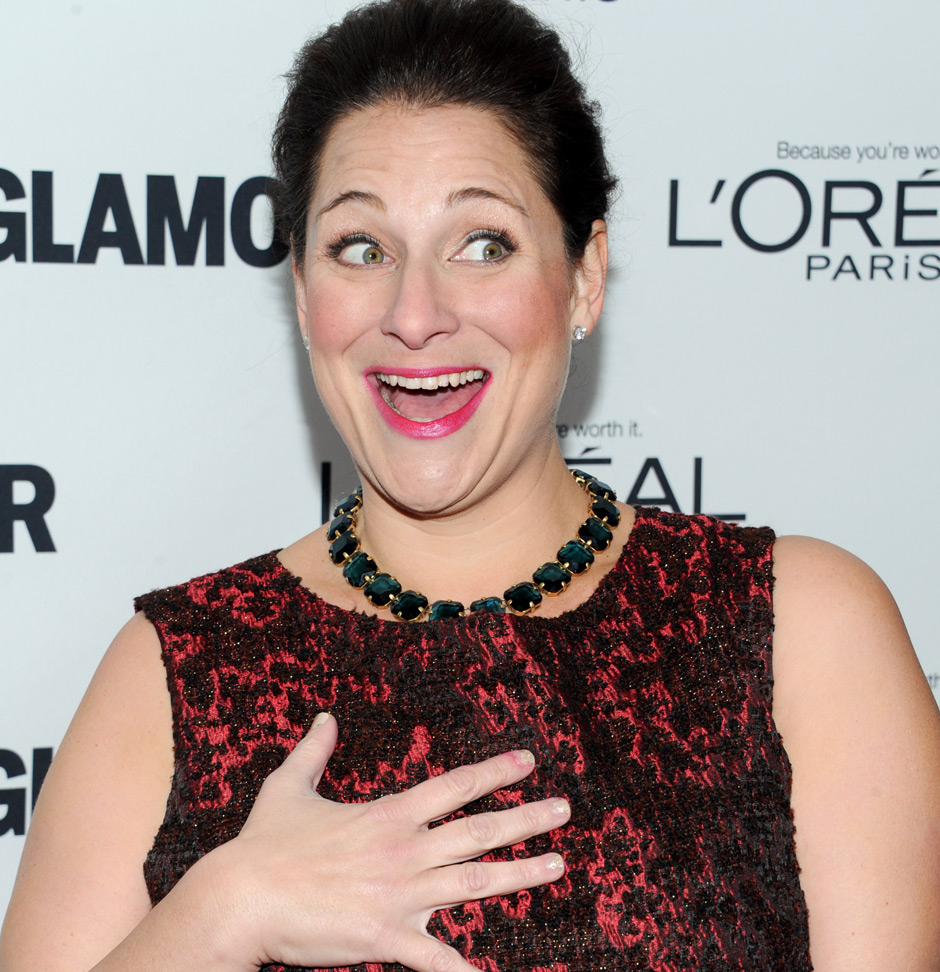Jennifer Weiner’s Hard-Knock Life

Jennifer Weiner attends the 23rd Annual Glamour Women of the Year Awards hosted by Glamour Magazine at Carnegie Hall on Monday, Nov. 11, 2013 in New York. Photo | Evan Agostini, Invision/AP
“Guys! There is a giant thing about me in the New Yorker!” Philly author Jennifer Weiner crowed on Twitter on Monday. And so there is: 6,800 words devoted to the author of such best-sellers as In Her Shoes and Good in Bed. One of the interesting points made in the piece by Rebecca Mead is that Weiner has two audiences: one that laps up her classic chick-lit, and another that follows, with emotions ranging from amusement to embarrassment to sympathetic indignation, her ongoing fights with the literary establishment. Weiner has been a staunch standard-bearer for books featuring heroines who are “plucky” and “likable” — women with whom one would like to be friends.
In the past, Weiner has waged epic battles over literary worth with, among other lions, the New York Times, Jonathan Franzen, Curtis Sittenfeld (they’re BFFs now, though), Jennifer Egan and Jeffrey Eugenides, to name just a couple. No one would ever say she shies away from controversy. In fact, a lot of folks think she courts it — that she comes from the school of “There’s no such thing as bad publicity,” and that her constant battles to have women writers taken more seriously are really just a constant battle to have herself taken more seriously.
Which is a view I subscribed to. Seriously.
But then the New Yorker profile had to go and ruin it all. First off, Mead describes Weiner’s bleak, bleak childhood, in which she was “bookish and socially isolated”:
Her mother, Weiner says, was consumed with feeding and clothing the family, and didn’t notice that she was friendless and unhappy; her father, a child psychiatrist, had different priorities.
Her parents announced they were divorcing when Weiner was 15: “My dad just left, and really renounced us. He said he didn’t want to be married, but he also didn’t want to be a father anymore. He was just gone.” Ouch. He showed up, a “crazy homeless person,” at a reading years later and declared that “because he caused me to suffer I owe him everything and lots of money.” He abused drugs and alcohol, went to prison, and died five years ago of an overdose.
Shit, compared to that, I’m Beaver Cleaver.
There were some other details in the piece that I found telling. Weiner’s own marriage to Philly attorney Adam Bonin, the father of her two daughters (ages 10 and six), imploded in 2010 in the face of unconventional work and provider roles. Weiner has a personal shopper who sets up and tags outfits — “including jewelry” — for her to wear to public events. This could indicate that she’s too busy to shop and dress herself. It could also indicate that she’s extremely insecure about her taste and/or body and doesn’t want to look in mirrors. Then there’s her advice to writer Adelle Waldman about the protagonist of Waldman’s acclaimed novel The Love Affairs of Nathaniel P.: “What if he’d had a sister who had, like, an unfortunate complexion, or maybe wasn’t the cutest girl?” Dammit, Jen, must you be so transparent? You’re making me feel sorry for you!
And you’re making me see that underneath your insistence that commercial fiction is just as valuable as the more elevated version lies the question that nags at your heart, the one you pose to Mead: “The things that come up again and again in my books, like a man who thinks that you are beautiful just as you are: Is that sentimental, wish-fulfillment bullshit that isn’t ever going to happen in real life?” Yeah, Jen. It is. You say so yourself: You tell Mead you long ago decided to “give my characters the thing that none of us get, which is the promise that it’s going to be okay.”
The trouble is, you’ve put yourself between that old rock and hard place. You insist on your satisfaction with the vast sea of faithful readers who appreciate what Mead calls your “casual prose, happy resolutions and lovable heroines.” You say you want “girls like me — who felt ugly, or fat, or lonely, or like it was never going to get better — to be able to read something and think maybe it will be.” So: These are your friends in the schoolyard, and there are enough of them to land all your books on best-seller lists. But it’s not enough, is it? You want to hang out with the people who don’t want you as a friend. You want that insider clique: the thin, the gorgeous, the academically admired and respected, the Franzens and Eugenidi of the world. My poor dear. It doesn’t work that way.
And you know it yourself. It was profoundly evident in the piece you wrote for Salon in September, after the New York Times hired Pamela Paul to helm its Book Review and announced its new “Shortlist” column that would include genre fiction. You fell all over yourself apologizing to everyone everywhere for having been too “pushy” and “obnoxious” and “shrill” in your quest for recognition:
If I gave offense, I’m sorry. I’ll try to do better. I recognize that “sorry if I hurt your feelings” is a weak apology, but it seems like the people who took offense have been too afraid to say so. I find this both hilarious and bewildering, given that in real life I am the least confrontational person in the world. I don’t even like returning clothes to Lands’ End because I’m worried about hurting Lands’ End’s feelings. Also, I drive a minivan, which I think makes me harmless by definition.
In other words, you screamed: Like me! Like me! LIKE ME!
The weird thing is, now I sort of do.
Follow @SandyHingston on Twitter.


